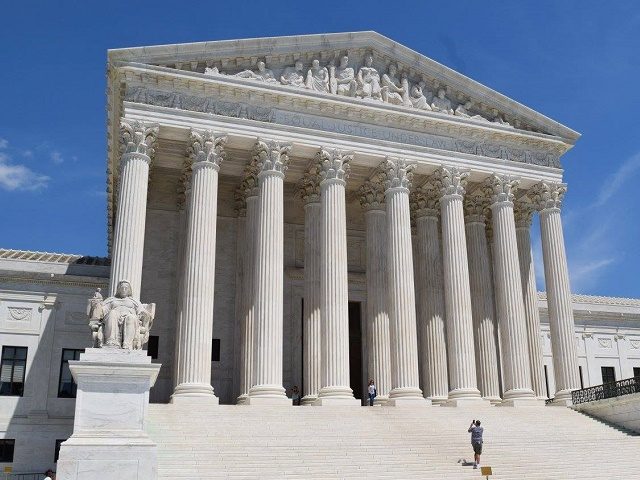WASHINGTON—On Monday, the Supreme Court denied requests to review several prominent federal appeals—called petitions for certiorari—including a Utah case asserting a constitutional right to polygamy and a challenge to Texas’s voter-ID law.
Summarizing Breitbart News’s original report, Cody Brown and his four wives from the reality TV series Sister Wives brought a federal lawsuit challenging the constitutionality of Utah’s law banning polygamy. On December 13, 2013, a U.S. district judge in Utah held in a 91-page opinion that laws saying a person can only be married to one other person at a time are unconstitutional.
After Utah authorities announced that they would not criminally prosecute the Browns for violating this state law, on April 11, 2016, the U.S. Court of Appeals for the Tenth Circuit reversed the district court, holding that the Browns do not have standing to challenge the polygamy statute because they cannot be injured by a law the government says will not be enforced against them.
In Monday’s orders, the U.S. Supreme Court denied the petition for certiorari that the Browns’ attorney, Prof. Jonathan Turley, had filed in Brown v. Buhman, asking the justices to take the case, ending the legal challenge and leaving the Browns in a five-person marriage with their 18 children.
The other major case the justices rejected this week is Abbott v. Veasey, a challenge to Texas’ voter-ID law, SB14. A federal district court declared the law unconstitutional. Then, the full U.S. Court of Appeals affirmed, with five judges dissenting in multiple opinions totaling 100 pages, comparing the majority’s position to Area 51 conspiracy theories.
The Supreme Court declined to take the case. However, Chief Justice John Roberts took the unusual step of issuing a statement with the denial, noting that the lower court had ordered additional court proceedings to determine “whether the Texas Legislature enacted SB14 with a discriminatory purpose and whether the law results in a denial or abridgement of the right to vote.”
Roberts explained that after those court proceedings result in a final court judgment, “the issues will be better suited for certiorari review at that time,” signaling that the Supreme Court may take the case at that later date.
Ken Klukowski is senior legal editor for Breitbart News. Follow him on Twitter @kenklukowski.

COMMENTS
Please let us know if you're having issues with commenting.